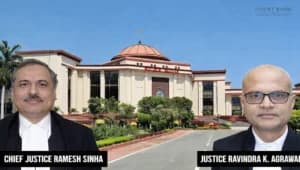The Madras High Court recently underscored the shortcomings in the Tamil Nadu Protection of Interests of Depositors (TNPID) Act and stressed that the government must take proactive steps to develop effective mechanisms ensuring that victims of financial fraud recover their money. The court emphasized that the primary goal of the Act is to safeguard depositors who have been cheated and to ensure the return of their funds.
Justice B Pugalendhi, presiding over the Madurai bench, pointed out a critical issue in the implementation of the Act. Despite the law’s intention, only about 10% of the defrauded amount has been disbursed to victims so far. The court stated, The mere registration of an FIR alone would not serve any purpose. The object of TNPID Act is to ensure that the victims got back their money. But, the data, which is available as provided by the Economic Offences Wing, discloses that not even 10% of the amount has been disbursed to the victims. The Government is having a moral responsbility to ensure that the victims got back their money.
The court elaborated on the process under the Act where the government, once satisfied that a financial institution is unlikely to repay deposits or interest, can issue an order of interim attachment. This involves attaching money or properties owned by the financial institution or others linked to the deposits collected. The competent authority appointed under Section 4 of the Act then applies to the Special Court for the interim attachment to be made absolute. However, the court noted that this process is slow and cumbersome, leading to undue delays in property attachment.
One key issue highlighted was the role of the District Revenue Officer (DRO), who is responsible for filing applications for the sale of attached properties. The court observed that the DROs are overburdened with other duties and are unable to focus adequately on their responsibilities under the Act. This neglect results in further delays. The Economic Offences Wing’s data indicated failures on the part of the DROs to act promptly.
“The State is expected to investigate and prosecute the cases on behalf of the victim. But these delays occurred in this case as well as in the other cases raises a question on the purpose for which these prosecutions have been made. The cases are pending for years together in the FIR stage itself. It is not known as to when the final report would be filed. It is not known as to how much time it would require for the trial Court to conclude the trial. After 20 years, it is not known whether the victim would reap any benefit. The Government has to evolve a mechanism to ensure that the victims are addressed and the object of the Act is achieved,” the court said.
The court also referenced a previous suggestion made to the state to appoint an exclusive officer dedicated to disposing of properties attached under the Act. It remains unclear whether the government has taken any steps to implement this recommendation.
These remarks were made while hearing petitions filed by victims seeking expedited investigation and timely filing of reports. The court pointed out that the Economic Offences Wing appears to act only after receiving a complaint rather than taking proactive measures. The court stressed that whenever a company offers interest rates above those prescribed by the Reserve Bank of India, it is the duty of the Economic Offences Wing to investigate the company’s background and verify if it can sustain the higher returns.
Read Also:-Madras High Court Imposes Interim Stay on NEET UG 2025 Results Over Re-Examination Plea
Additionally, the court suggested amending the Act to empower investigating officers to directly apply to the Special Court for property attachment, without needing prior approval from higher police authorities, as currently required under Section 197 of the Code of Criminal Procedure.
The court also highlighted the shortage of manpower within the investigative agencies compared to their workload. It urged the government to address these challenges by providing necessary resources such as video conferencing facilities and other support to help officers perform their duties efficiently.
Counsel for Petitioner: Mr. R. Balakrishnan, Mr. S. Sankarapandian
Counsel for Respondents: Mr. M. Sakthi Kumar, Government Advocate (Crl. Side)
Case Title: A Paramasivam and Another v. The Inspector of Police and Others
Case No: Crl. OP(MD)Nos. 3155, 5962 of 2024














